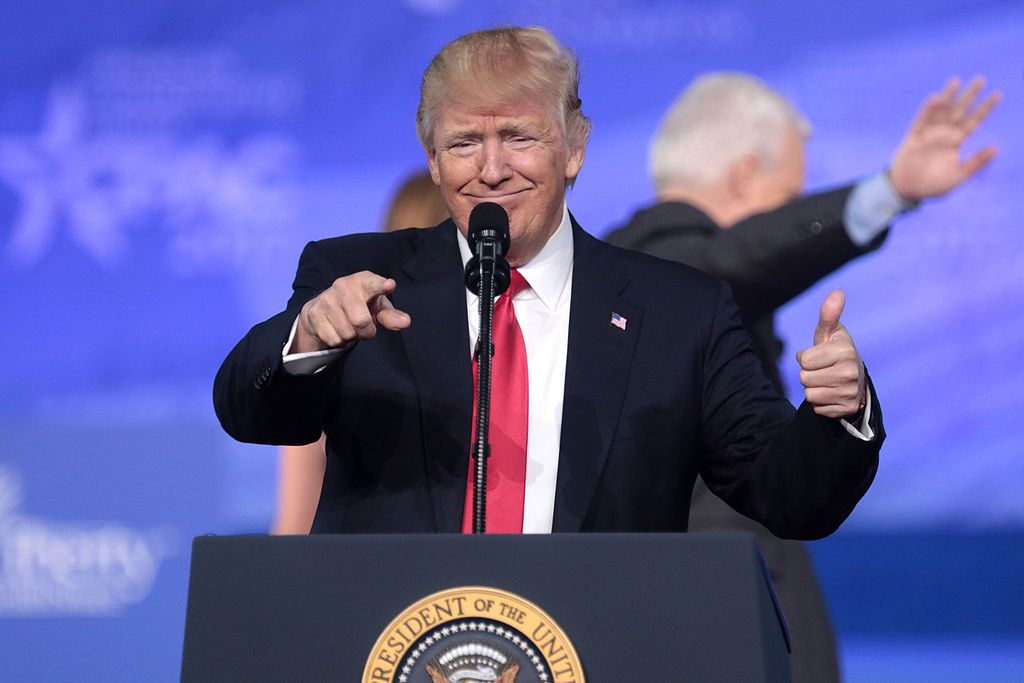Following President-elect Donald Trump's victory in the 2024 U.S. presidential election, Iran has reportedly suspended its plans for military action against Israel. This decision reflects Tehran's anticipation of potential shifts in U.S. foreign policy under the incoming administration.
Iran's Strategic Reassessment
Iran's decision to halt its "True Promise 3" operation against Israel indicates a strategic reassessment in light of Trump's election. The operation, initially planned as a retaliatory measure, has been postponed, suggesting Tehran's intent to avoid immediate escalation.
This move aligns with Iran's historical pattern of calibrating its military strategies based on U.S. political transitions. The Iranian leadership appears to be weighing the potential for renewed diplomatic engagement or, conversely, the reimposition of stringent sanctions reminiscent of Trump's previous tenure.
Economic Constraints and Regional Dynamics
Iran's economy continues to grapple with challenges stemming from past sanctions and internal mismanagement. These economic constraints, coupled with the weakened state of its ally Hezbollah, have likely influenced Tehran's decision to suspend aggressive military actions.
Hezbollah, operating primarily in Lebanon, has faced significant setbacks due to regional conflicts and internal political pressures. Its diminished capacity reduces Iran's leverage in proxy engagements against Israel, prompting a more cautious approach.
Anticipating U.S. Policy Shifts
President-elect Trump's campaign rhetoric emphasized a desire to reduce U.S. involvement in Middle Eastern conflicts. Iran may interpret this as an opportunity to de-escalate tensions and seek relief from economic sanctions. However, uncertainties remain regarding the specifics of the forthcoming U.S. foreign policy.
The Iranian government has expressed readiness for confrontation if necessary, with officials stating that their defense capabilities are prepared to respond to any aggression.
Public Reaction on Social Media
The suspension of Iran's military plans has elicited varied responses on social media platforms:
-
@MiddleEastAnalyst: "Iran's pause on attacking Israel post-Trump election shows strategic patience. They're waiting to see U.S. policy direction."
-
@PeaceNowAdvocate: "Encouraging to see Iran halting aggressive plans. Diplomacy should be the focus moving forward."
-
@DefenseWatchDog: "Iran's decision is likely a tactical move. They might be buying time to strengthen their position."
-
@GlobalAffairsGuru: "This suspension reflects Iran's economic struggles and weakened alliances. Their options are limited."
-
@PolicyPundit: "Trump's victory has clearly impacted Iran's military calculus. U.S. foreign policy shifts are pivotal."
-
@RegionalSecurityExpert: "Hezbollah's weakened state plays a crucial role in Iran's restraint. Regional dynamics are shifting."
Looking Ahead
As the U.S. prepares for a transition of power, Iran's future actions will likely hinge on the policies adopted by the incoming administration. The international community remains watchful, hoping for a reduction in hostilities and a renewed focus on diplomatic solutions to longstanding conflicts in the Middle East.



 Suspected Drone Strike Hits RAF Akrotiri Base in Cyprus, Causing Limited Damage
Suspected Drone Strike Hits RAF Akrotiri Base in Cyprus, Causing Limited Damage  Trump to Address Nation as U.S. Launches Strikes in Iran, Axios Reports
Trump to Address Nation as U.S. Launches Strikes in Iran, Axios Reports  Does international law still matter? The strike on the girls’ school in Iran shows why we need it
Does international law still matter? The strike on the girls’ school in Iran shows why we need it  Marco Rubio to Brief Congress After U.S.-Israeli Strikes on Iran
Marco Rubio to Brief Congress After U.S.-Israeli Strikes on Iran  Failure of US-Iran talks was all-too predictable – but Trump could still have stuck with diplomacy over strikes
Failure of US-Iran talks was all-too predictable – but Trump could still have stuck with diplomacy over strikes  Middle East Conflict Escalates After Khamenei’s Death as U.S., Israel and Iran Exchange Strikes
Middle East Conflict Escalates After Khamenei’s Death as U.S., Israel and Iran Exchange Strikes  Australia Rules Out Military Involvement in Iran Conflict as Middle East Tensions Escalate
Australia Rules Out Military Involvement in Iran Conflict as Middle East Tensions Escalate  UK Accepts U.S. Request to Use British Bases for Defensive Strikes on Iranian Missiles
UK Accepts U.S. Request to Use British Bases for Defensive Strikes on Iranian Missiles  U.S.-Israel Strike on Iran Escalates Middle East Conflict, Trump Claims Khamenei Killed
U.S.-Israel Strike on Iran Escalates Middle East Conflict, Trump Claims Khamenei Killed  HHS Adds New Members to Vaccine Advisory Panel Amid Legal and Market Uncertainty
HHS Adds New Members to Vaccine Advisory Panel Amid Legal and Market Uncertainty  Trump Says U.S. Combat Operations in Iran Will Continue Until Objectives Are Met
Trump Says U.S. Combat Operations in Iran Will Continue Until Objectives Are Met  EU Urges Maximum Restraint in Iran Conflict Amid Fears of Regional Escalation and Oil Supply Disruption
EU Urges Maximum Restraint in Iran Conflict Amid Fears of Regional Escalation and Oil Supply Disruption  Trump Announces U.S. Strikes on Iran Navy as Conflict Escalates
Trump Announces U.S. Strikes on Iran Navy as Conflict Escalates  Macron Urges Emergency UN Security Council Meeting as US-Israel Strikes on Iran Escalate Middle East Tensions
Macron Urges Emergency UN Security Council Meeting as US-Israel Strikes on Iran Escalate Middle East Tensions  Israel Strikes Hezbollah Targets in Lebanon After Missile and Drone Attacks
Israel Strikes Hezbollah Targets in Lebanon After Missile and Drone Attacks  Israel Launches Fresh Strikes on Iran After Death of Supreme Leader Ayatollah Khamenei
Israel Launches Fresh Strikes on Iran After Death of Supreme Leader Ayatollah Khamenei  Argentina Tax Reform 2026: President Javier Milei Pushes Lower Taxes and Structural Changes
Argentina Tax Reform 2026: President Javier Milei Pushes Lower Taxes and Structural Changes 































